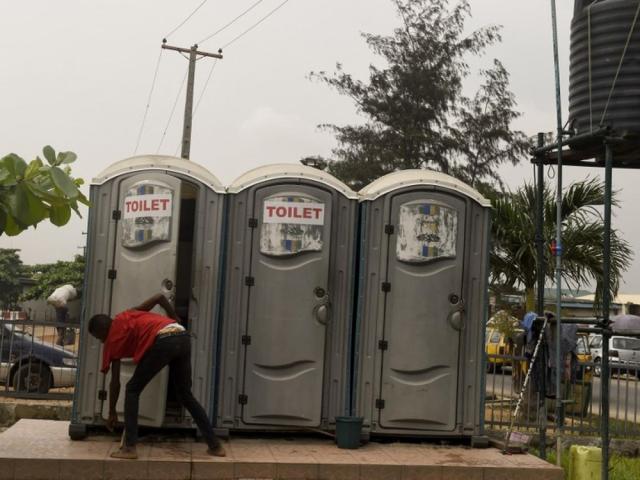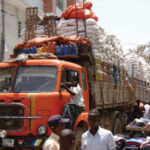Nearly 18% of Nigerians still defecate in the open, placing the country ninth globally for open defecation in 2023. That means tens of millions of people still rely on bushes, drains, riverbanks, and abandoned buildings instead of toilets.
Despite being Africa’s largest economy, the sanitation gap remains vast, and Lagos, Nigeria’s most populous state, carries a significant share of this crisis.
In October 2022, Jigawa became the first—and so far only—Nigerian state to be declared open-defecation-free, with 85 Local Government Areas nationwide reaching the same milestone.
The breakthrough was powered by the provision of safe water systems and the construction of public toilets, which replaced unhygienic practices with safer alternatives.
The issue stems largely from the poor availability of public toilets, lack of water and the unaffordability of private household facilities. In many urban neighbourhoods, residents are forced to rely on hidden corners, uncompleted buildings, or even roadside drains.
In rural and peri-urban communities, bushes and riversides remain the common resort. The cost of using the few public toilets that exist, often poorly maintained, also drives many to choose unsafe alternatives.
Nigeria has made commitments through the National Roadmap to End Open Defecation by 2025, launched in 2019, and signed into law by President Buhari in 2020. States are expected to align with this plan, yet enforcement and infrastructure delivery remain weak.
According to the 2021 Water, Sanitation and Hygiene National Outcome Routine Mapping (WASHNORM) Survey, 45% of people in Lagos lack access to safely managed water, 75% lack access to safely managed sanitation, and 65% do not have access to hygiene services.
Lagos’ 10,000 Toilet Plan
Against this backdrop, the Lagos State Government has announced a plan to build 10,000 public toilet units across the state. This initiative will provide safer sanitation for communities while creating opportunities for private investment.
The move, unveiled at the Lagos Water Partnership Steering Committee meeting, is positioned as part of Lagos’ broader goal of becoming a “water-resilient megacity.”
The consequences are devastating. Human waste left in the open contaminates water sources, spreading diseases like cholera, typhoid, and diarrhoea, which collectively kill over 70,000 children under five in Nigeria annually.
Lagos itself has witnessed recurring cholera outbreaks, including the July 2024 outbreak with 1,661 suspected cases of cholera, including 70 confirmed ones with 58 deaths recorded. Communities living near polluted streams or drainage channels face recurring health crises.
Ecosystems also suffer, as untreated waste seeps into rivers and lagoons, damaging aquatic life and poisoning food chains.
If delivered, 10,000 toilets could significantly reduce exposure to faecal contamination, cut disease transmission, and improve dignity, especially for women and children who are most vulnerable.
It would also free communities from the environmental stench and shame of unhygienic practices. Beyond health, the initiative would create jobs for operators, cleaners, and maintenance workers, while attracting private partners to invest in modern sanitation models.
At its heart, this is about dignity. For the market woman who has to sneak behind a stall, the schoolchild missing classes due to waterborne illness, or the community forced to fetch water from a stream polluted with fecal matter, safe toilets are a lifeline.
In Lagos’ densely populated areas like Ajegunle and Makoko, where entire households rely on makeshift wooden shacks built over water, toilets will mean safety, privacy, and restored human worth.
With the right systems, human waste can be treated and recycled into biogas for cooking, organic fertilizers for agriculture, and even treated water for non-drinking purposes.
Countries like Ghana and South Africa are already exploring such circular economy solutions, showing that waste management can power sustainability and reduce dependence on fossil fuels.
What Lagos is attempting is a test of whether Africa’s largest city can match its rapid urban growth with the infrastructure its people deserve. Sanitation is about equity, access, and healthy living.
A megacity that still forces millions to choose between dignity and survival is one that undermines its own progress.
But a Lagos where clean, safe toilets are as common as yellow buses and street markets is a Lagos that signals it is ready for the future. The success or failure of this plan will not only determine who falls sick or stays healthy, but also who feels seen and valued in the daily life of the city.
Nigeria ranks ninth globally in open defecation in 2023, with nearly 18% of its population lacking proper sanitation facilities, relying instead on open areas like bushes and drains. Lagos, the country's most populous state, faces a significant sanitation challenge despite Nigeria being Africa's largest economy. Efforts to combat this issue include Jigawa State's distinction as being declared open-defecation-free, achieved through the implementation of safe water systems and public toilets.
Lagos State is addressing the sanitation crisis with a plan to build 10,000 public toilets, aiming to promote hygiene, reduce disease transmission, and offer dignity, particularly to vulnerable populations like women and children. This initiative, part of Lagos' vision to become a "water-resilient megacity," could significantly impact public health by minimizing contamination risks and creating job opportunities in managing these facilities.
The human and ecological consequences of open defecation are dire, including significant health risks such as cholera and diarrhea, and environmental degradation due to untreated waste entering water bodies. The initiative not only promises improved sanitation but also sets a precedent for sustainable waste management, with potential for recycling human waste into resources like biogas and organic fertilizers, as seen in countries like Ghana and South Africa.
Ultimately, Lagos' success in this sanitation endeavor could enhance equitable access to basic hygiene infrastructure, aligning its rapid urban expansion with the needs of its population. Meeting these challenges is essential for ensuring a healthier, more dignified future for all residents, and for signaling the city's readiness for sustainable growth.






